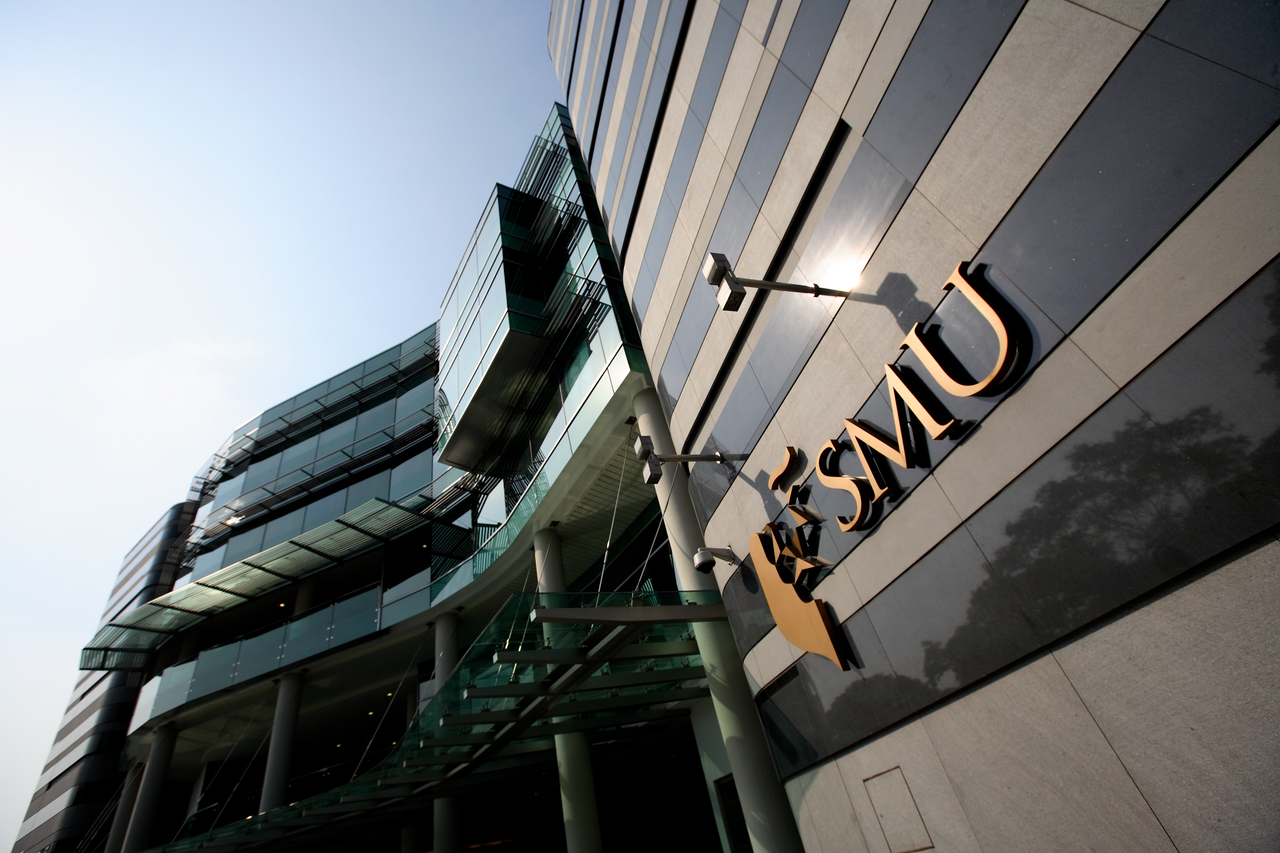
My Bank Promoted Me Within Months of Getting My MBA. Here’s What Happened
The SMU MBA gave Mandeep Sedha a competitive edge over her peers at work. Within months of graduation, she was promoted at Credit Suisse. She reveals how the programme gave her career a boost: from providing her the flexibility to tailor the degree to her needs, to being able to interact with people from various industries.
Mandeep Sedha, who’s now an Information Security and Risk Partner at Credit Suisse, didn’t have to wait long to see the benefits of her Singapore Management University (SMU) MBA—she was promoted within months of graduating. Her boss saw changes in the way she handled her work and spoke to stakeholders shortly after she completed her MBA. “The MBA gave me a great competitive edge over my peers at work and even in the financial services industry.”
The SMU MBA also put Sedha firmly on the radar of senior management at her bank. “It gave me a broader sense of business knowledge and leadership skills. As a result, I was given opportunities to handle bigger projects and higher-visibility tasks,” she says.

"The MBA gave me a great competitive edge over my peers at work and even in the financial services industry."
Mandeep Sedha
Information Security and Risk Partner at Credit Suisse
What was it about the MBA that gave Sedha’s career such an immediate boost? For starters, she liked the wide range of elective courses available, which enabled her to tailor the degree to her career needs.
“The programme helped me to broaden my knowledge and appreciate IT from a different angle—not just from an information security aspect, but also the overall picture of how IT improves banking,” she says. “Now I’m better able to comprehend my stakeholders’ concerns, and understand the big picture.”
The ‘Negotiating in Business’ elective module was particularly helpful to Sedha, who did her MBA part-time over 18 months. “In my line of work, I’m constantly negotiating the risks to the bank, and I need to get stakeholders to sign off on them. This module really helped me to handle some of my more difficult clients,” she says.
The SMU MBA puts a strong emphasis on leadership and communication skills. It also regularly rotates students into different case-study groups, meaning they interact with different people during their studies.
“This puts you in a position of having to interact with anyone and everyone, which really made a difference for me,” says Sedha. “I’ve grown out of my fear about networking and starting conversations. I’m now more confident in speaking up, to challenge and be challenged during conversations. It’s something that my management has recognised and taken seriously.”
Sedha put a lot of effort into researching where to do her MBA, particularly because she didn’t want to leave her job while she studied. “It was important for me to keep working. Singapore as a society values work experience as much as it does qualifications, and I didn’t want to let that go,” she says.
SMU stood out for a number of reasons. It has a strong reputation and is ranked as the 30th Top MBA for Finance globally by the Financial Times. More than 80 per cent of its MBA students receive employment offers within three months of graduating.
Sedha also liked the fact that the SMU programme didn’t differentiate between full-time and part-time students. “You have the same opportunities as the full-time students—be they challenges, exchanges, or networking sessions,” she says. “As long as you can manage your time, you can take part in anything.”
Another reason Sedha chose the part-time MBA was because it allowed her to fit her study around her family obligations. “I’m a working mum and my son was two years old when I started the MBA,” she says. “But the programme is so well planned that I managed to put in the hours to attend lectures, do assignments, prepare for exams without sacrificing time with my family.”
Sedha says too many mothers believe they won’t be able to cope with the demands of a postgraduate programme. “But SMU recognises that students have different commitments outside of studying. SMU offers a degree of flexibility that allowed me to better manage all aspects of my life.”
During the MBA, one experience that really stood out for Sedha was her semester exchange at the University of British Columbia in Vancouver. “It was one of the most memorable times in the overall programme. I experienced the life of a full-time MBA student across a span of eight weeks,” she says.
Sedha also enjoyed being part of the vibrant and diverse student community at SMU’s campus in the heart of Singapore. “There was a high level of participation from all of my classmates. Hearing their different perspectives on the same issues got me to rethink and rework my solutions,” she says. “I could literally take a solution discussed in class, implement it at work and see results immediately.”

Despite being a young business school, the Lee Kong Chian School of Business is already ranked in the top 50 globally. There’s so much going on right now at the school: the industry partnerships, the cutting-edge programmes, and the central location. Now is the best time to pursue an MBA with SMU.
Mandeep Sedha
Information Security and Risk Partner at Credit Suisse
Receiving the perspectives of students working in different sectors—not just financial services—was also a key advantage of the SMU MBA. “It was such an eye-opener to be around students from so many industries and career paths. SMU is a fantastic networking space.”
Sedha thinks the SMU MBA has a lot to offer finance professionals in Singapore and globally.
“Despite being a young business school, the Lee Kong Chian School of Business is already ranked in the top 50 globally. There’s so much going on right now at the school: the industry partnerships, the cutting-edge programmes, and the central location. Now is the best time to pursue an MBA with SMU.”
This article was originally published on eFinancialCareers.




